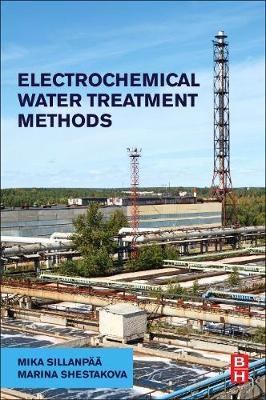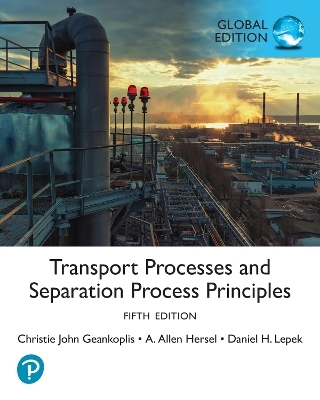
Electrochemical Water Treatment Methods
Butterworth-Heinemann Inc (Verlag)
978-0-12-811462-9 (ISBN)
Electrochemical technologies have many common issues in terms of design, operation and performance. This book brings together a wealth of information on all different methods in a single source to provide broad insights and enable the connection between challenges and opportunities for different methods. The combination of technical information, design and case studies offered helps researchers better understand the challenges associated with scale up and implementation.
Mika Sillanpää’s research work centers on chemical treatment in environmental engineering and environmental monitoring and analysis. The recent research focus has been on the resource recovery from waste streams. Sillanpää received his M.Sc. (Eng.) and D.Sc. (Eng.) degrees from the Aalto University where he also completed an MBA degree in 2013. Since 2000, he has been a full professor/adjunct professor at the University of Oulu, the University of Eastern Finland, the LUT University, the University of Eastern Finland and the University of Johannesburg. Dr. Marina Shestakova received a master’s degree in Environmental Engineering from the High School of Technology and Energy, Russia. After that, Dr. Shestakova continued her studies in Finland and received an MSc (Technol.) in Bioenergy Technology in 2010. In 2012, she began her PhD studies under the supervision of Prof. Sillanpää at the Lappeenranta University of Technology. She received her DSc degree in Green Chemical Technology in 2016. Dr. Shestakova has also conducted research work at the University of Alicante (Spain) and Coventry University (UK). Currently Dr. Shestakova works as a postdoctoral researcher in the Laboratory of Green Chemistry, Lappeenranta University of Technology. Her areas of interest include water treatment, environmental engineering, environmental remediation, renewable energy, nanocomposites, and nanomaterials
1. Introduction
1.1 Classification of Pollutants and Water Treatment Methods
1.2 Fundamentals of Electrochemical Processes in Water Treatment
1.3 Summary
2. Electrochemical Water Treatment Methods
2.1 Electrochemical Oxidation (Including Electrodisinfection
2.2 Electrochemical Reduction
2.3 Electrocoagulation
2.4 Electroflotation
2.5 Electrodialysis
2.6 Summary
3. Emerging and Combined Electrochemical Methods
3.1 Electrodeionization
3.2 Capacitive Deionization
3.3 Electro-Fenton Methods
3.4 Microbial Fuel Cells
3.5 Photoelectrocatalysis
3.6 Sonoelectrocatalysis
3.7 Summary
4. Equipment for Electrochemical Water Treatment
4.1 Electrochemical Reactors
4.2 Technological Solutions and Equipment Used in Electrocoagulation Process
4.3 Electroflotation Reactor
4.4 Examples of the Use of Electrochemical Water Treatment Methods in Practice
4.5 Summary
| Erscheinungsdatum | 06.07.2017 |
|---|---|
| Verlagsort | Woburn |
| Sprache | englisch |
| Maße | 152 x 229 mm |
| Gewicht | 430 g |
| Themenwelt | Technik ► Umwelttechnik / Biotechnologie |
| ISBN-10 | 0-12-811462-2 / 0128114622 |
| ISBN-13 | 978-0-12-811462-9 / 9780128114629 |
| Zustand | Neuware |
| Haben Sie eine Frage zum Produkt? |
aus dem Bereich


